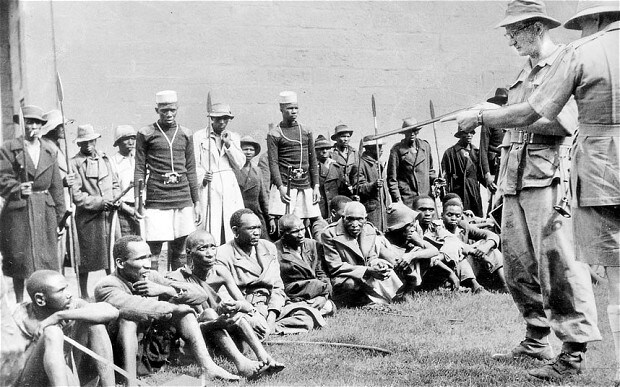
The late 19th century saw the establishment of the British colony in Kenya, marking a significant chapter in the colonial history of East Africa. The colonization of Kenya was driven by a combination of economic interests, strategic considerations, and ideological motivations, as Britain sought to expand its imperial influence and exploit the resources of the African continent.
1. British Imperial Expansion: The British colonization of Kenya was part of a broader wave of European imperial expansion in Africa during the late 19th century, known as the "Scramble for Africa." Motivated by economic competition, strategic rivalry, and notions of racial superiority, European powers sought to carve out territories and establish colonies in Africa to exploit its resources and dominate its peoples.
2. Economic Interests: One of the primary motivations behind British colonialism in Kenya was economic exploitation. The fertile land and favorable climate of Kenya's highlands were ideal for European-style agriculture, particularly the cultivation of cash crops such as coffee, tea, and sisal. British settlers, known as "colonialists," were encouraged to establish large-scale plantations and ranches, exploiting African labor and resources for their own profit.
3. Strategic Considerations: Kenya's strategic location in East Africa made it an attractive target for British colonial expansion. Control over Kenya provided Britain with access to the interior of East Africa and the potential for trade routes to the Indian Ocean. Additionally, Kenya served as a buffer zone against other European powers, particularly Germany, which controlled neighboring territories such as Tanganyika (present-day Tanzania).
4. Railway Construction: The construction of the Uganda Railway, linking the Kenyan port of Mombasa to the interior of East Africa, played a crucial role in the colonization of Kenya. The railway project, initiated in the late 19th century, was driven by British strategic interests in securing a trade route to the East African interior and facilitating the export of raw materials and agricultural produce.
5. British East Africa Company: The British East Africa Company (BEAC) played a significant role in the initial colonization of Kenya. Chartered by the British government, the BEAC was granted authority over large swathes of territory in East Africa, including present-day Kenya, Uganda, and Tanzania. The company's activities focused on commercial ventures, such as trade and agriculture, and played a key role in laying the groundwork for British colonial rule in the region.
6. Resistance and Conflict: The British colonization of Kenya was met with resistance from indigenous peoples, particularly the various ethnic groups collectively referred to as the "Kenyans." Resistance to British rule took various forms, including armed uprisings, protests, and acts of sabotage against colonial infrastructure. The most notable resistance movement was the Mau Mau uprising, which erupted in the 1950s and sought to overthrow British colonial rule through guerrilla warfare.
7. Land Dispossession: One of the most profound impacts of British colonialism in Kenya was the displacement and dispossession of indigenous peoples from their ancestral lands. The British colonial authorities implemented policies such as the Crown Lands Ordinance and the Land Acquisition Act, which facilitated the expropriation of land for European settlement and commercial agriculture. This led to widespread landlessness and impoverishment among Kenya's indigenous populations, as well as social and economic inequality.
8. Racial Segregation and Discrimination: British colonial rule in Kenya was characterized by racial segregation and discrimination, with Europeans enjoying privileged status and access to economic and political opportunities denied to indigenous Africans. The colonial administration implemented policies of racial segregation in education, housing, and public services, reinforcing racial hierarchies and divisions within Kenyan society.
9. Missionary Activity: British colonization brought with it the spread of Christianity through missionary activity. Christian missionaries played a significant role in the colonization of Kenya, establishing churches, schools, and medical facilities across the country. While missionary efforts were often intertwined with colonial objectives, they also had a lasting impact on the religious and cultural landscape of Kenya, contributing to the spread of Christianity among indigenous populations.
10. Legacy and Independence: The legacy of British colonialism in Kenya continues to shape the country's socio-political and economic landscape. Independence movements emerged in the mid-20th century, culminating in Kenya's independence from British rule in 1963. However, the legacy of colonialism, including land dispossession, ethnic divisions, and economic inequality, remains deeply entrenched in Kenyan society, posing ongoing challenges to the country's development and national unity.
In summary, the establishment of the British colony in Kenya during the late 19th century was driven by economic, strategic, and ideological motives. The colonization of Kenya brought profound changes to the country, including land dispossession, racial segregation, and the spread of Christianity. The legacy of British colonialism continues to influence Kenya's socio-political and economic landscape, shaping the country's path to independence and its ongoing struggle for social justice and development.